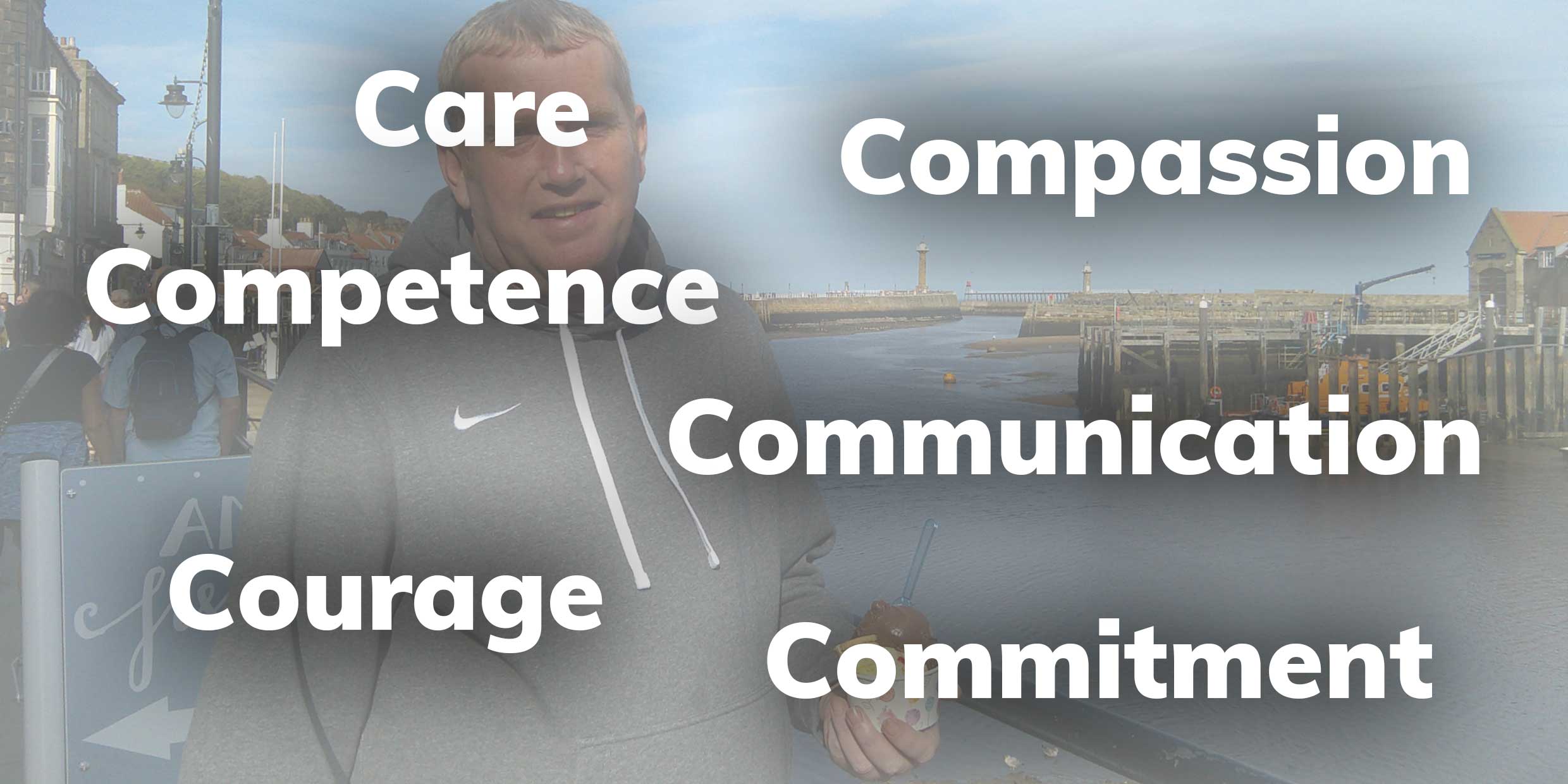
All Health and Social Care workers must demonstrate the 6 Cs in Health and Social Care. They are the foundations for providing the highest quality care possible to patients, residents, and clients. This article will focus on providing care to residents.
The 6 Cs ensure that the standard for Health Care professionals remains consistent, compassionate, and high quality.
The Compassion in Practice strategy, including the 6 Cs, was devised by Jane Cummings, NHS England Chief Nursing Officer. It launched in December 2012.
Care is at the core of the industry – it’s in the name! Providing care to residents is at the heart of what Health and Social Care professionals do.
The people receiving the care expect it to be tailored to their needs. They should consistently receive the highest quality care that is right for them, along every step of their journey.
Caring about each individual and aiming to provide them with the best outcome underpins the first C.
The 2nd C is Compassion. It is important to provide high quality care to residents, and it is essential that this is done with compassion. Compassionate care is achieved by empathising with individuals, respecting them, and treating them with dignity.
The way that people perceive their care is also a big factor in their experience at the service. If staff are compassionate, understanding and attentive to residents’ needs, they will provide an all-round higher standard of care to residents, and residents are likely to feel as though the level of care they received was of high quality.
Compassion also extends to colleagues and members of the wider community – everyone should be treated with respect regardless of who they are or what their background is.
Competence is all about having the knowledge and expertise to carry out a high level of care. Anyone in the Health and Social Care professions must be able to understand an individual’s needs. They must also have the clinical knowledge and technical knowledge required to deliver effective care and treatments that are suitable for the individual.
This knowledge must be based on the most up to date research and evidence. As new research is constantly being conducted and new evidence is frequently being collated, it is essential that Health and Social Care professionals regularly undertake Continued Professional Development (CPD). This ensures their knowledge is kept current and up to date with the most recent information.
CPD can be in the form of professional training courses, workplace training, or simply just reading up on any new studies published and ensuring that the information within the study is understood. This can be done by conducting further research, or asking questions and having discussions with fellow professionals.
The 4th C in Health and Social Care is Communication. Perhaps one of the most important, as good communication allows for strong, trusting relationships to be built not only with residents, but with other colleagues and external professionals too.
Providing care to an individual often involves a variety of care professionals, so good communication is vital for working well together as a team to provide the best care possible.
Communication is not just about talking though – good listening skills also fall under the Communication umbrella.
Truly listening to residents ensures you can understand their needs in the best way possible. In addition, residents should always be involved in decisions about their care if they have the capacity to do so. Good listening skills are therefore essential to ensure that the resident’s thoughts and feelings are heard in relation to their care as well as their needs.
As the well-known phrase states, communication is key!
Another important aspect of communication is in the language that we use. Check out our article on why the language surrounding mental health matters.
Courage links in closely with safeguarding and allows care professionals to do the right thing by the people that they care for, especially in difficult and challenging situations. It also means care workers have the courage to raise concerns and issues that may arise.
Courage also means that social care workers are comfortable and confident in speaking up if they are unsure of something, and in asking for help when they need it.
The final C is Commitment – being committed to residents and committed to providing them with the best care. Commitment also encompasses the need to continue working to improve residents’ care through research, feedback, and experiences.
Care work can be difficult at times and remaining committed to residents’ care throughout any challenging times is a skill that can be tough, but it is essential.
Reflection
Do you see yourself reflected in the 6 Cs in Health and Social Care? If so, you could be the perfect fit for a role in Health and Social Care! Find out more about working for Northern Healthcare, and if you’re interested, you can check out our current vacancies here.
References
Skills for Care 6 Cs in Social Care guide.
Further Reading
As well as the 6 Cs in Health and Social Care, there is also a set of core values that underpin the profession. You can read more about Social Work Values here.